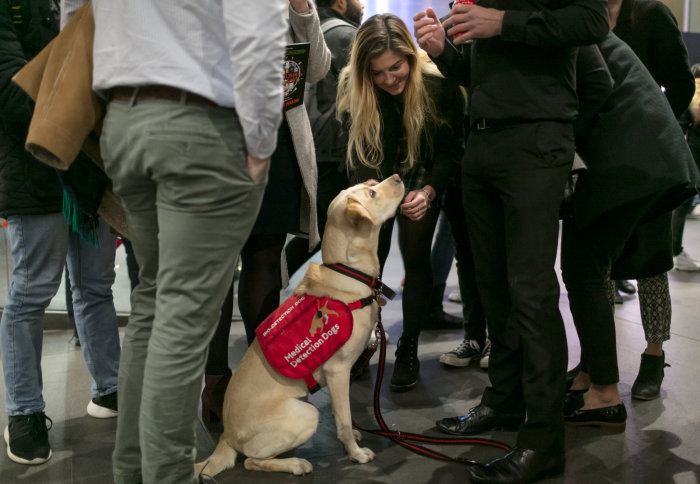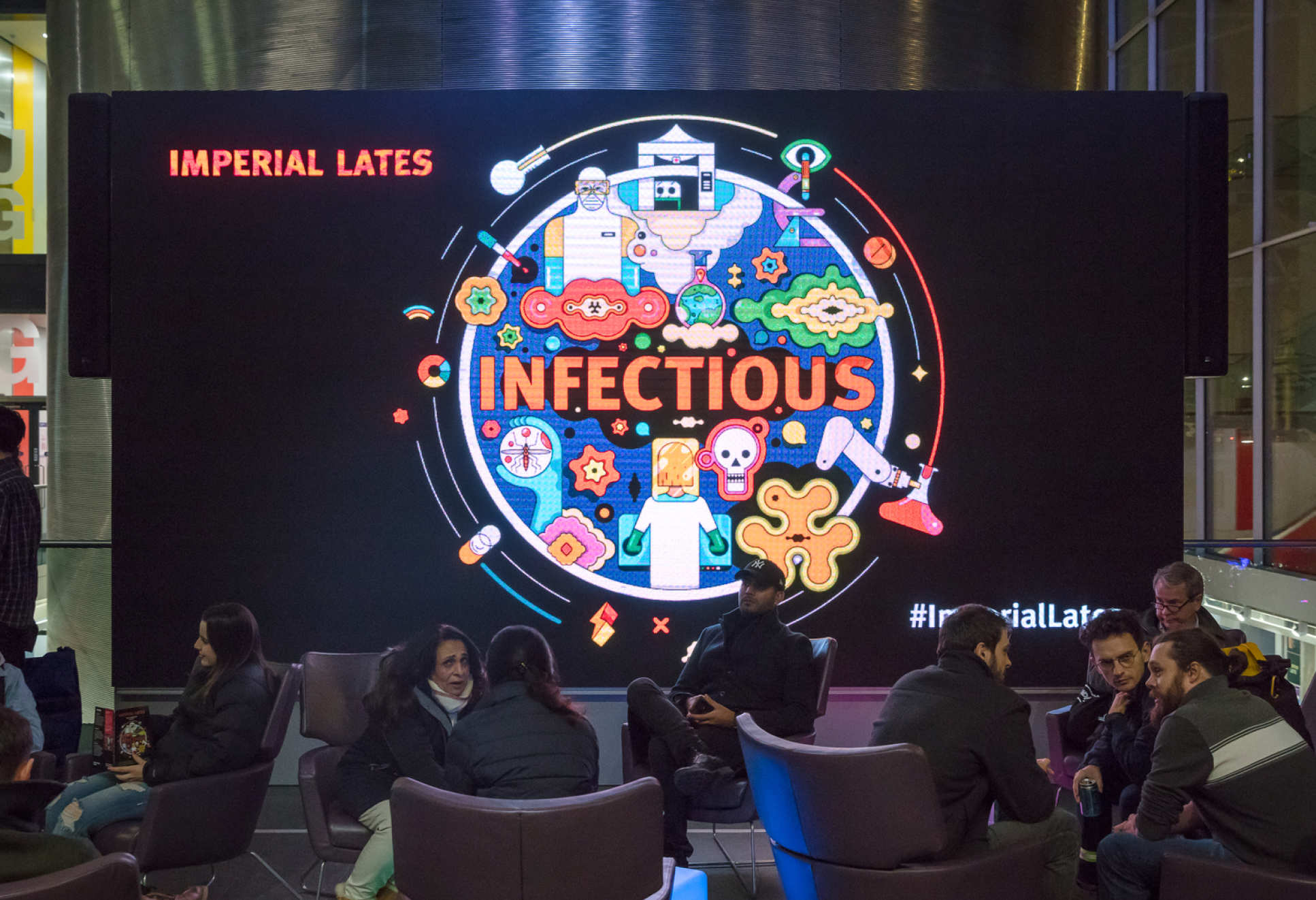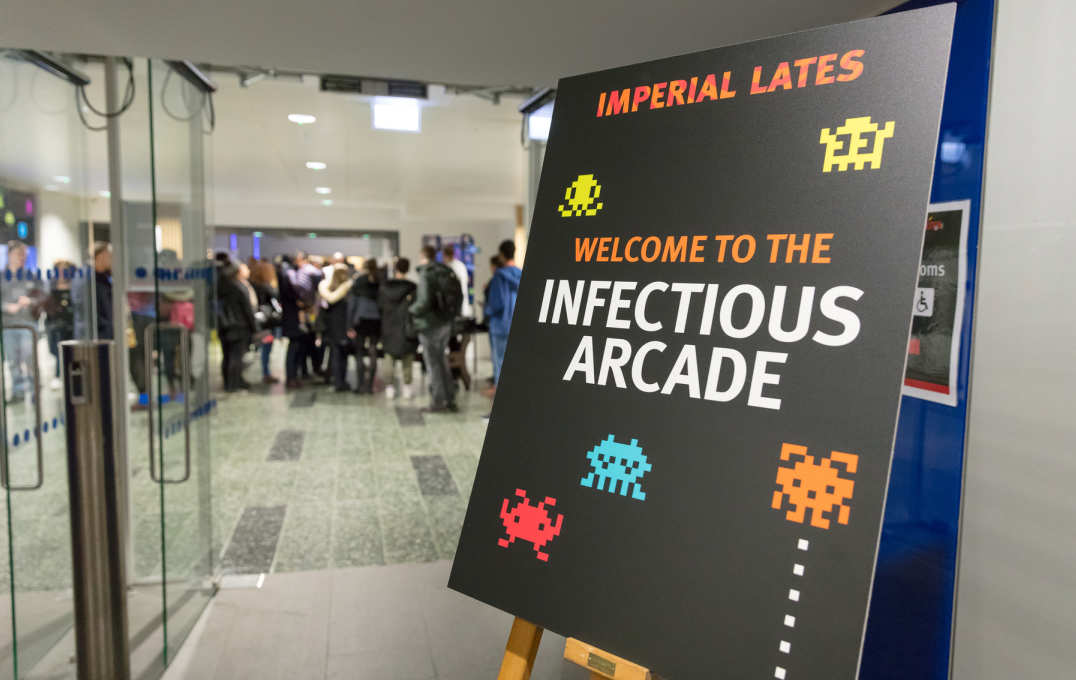College gets infectious at November’s Imperial Lates

Medical detection dog Jodie was a hit at the Imperial Lates event
From disease roulette to infection-detecting dogs, November’s Imperial Lates event explored infections, deadly diseases, and our work to beat them.
The free event of stalls and talks showcased a malaria jungle, an infectious arcade, fly swatting and Mrs X, a superbug inspired play exploring the work of Sir Alexander Fleming and the impact of antibiotic resistance in the modern day.

The evening was part of the ongoing Imperial Lates series of evening showcases where researchers and academics share the wonder of their work with members of the public.
Dr Dog
The most adorable new weapons against disease, Jodie and Dave, greeted guests with wagging tails. They are trained to sniff out human diseases as part of the Medical Detection Dogs team.

An Imperial and Cystic Fibrosis Trust study found that the bio-detection dogs can detect ultra-low concentrations of the bacteria Pseudomonas aeruginosa, the most common cause of lung infections for people with cystic fibrosis (CF).
Current diagnostic techniques mean P. aeruginosa can be difficult to detect early on and is usually only found once it takes hold in the lungs. At this point, it is difficult to treat as broad-spectrum antibiotics have a limited effect.
These dogs could potentially help by sniffing out infections sooner, alerting doctors so they can treat patients quickly with more targeted antibiotics.
Each dog is trained to detect a specific scent, and Dave and Jodie are part of a team of four dogs detecting P. aeruginosa. Other dogs in the programme are working to detect malaria, Parkinson’s disease and cancers. The Medical Detection Dogs team believes there is high potential for many more diseases to be detected by the incredible noses of our four-legged friends.
Infectious arcade
Guests were exposed to a host of infectious games at the Infectious Arcade.
Through reliving childhood favourites, guests unleashed their inner children with a variety of arcade games. Armed with antibiotic Nerf guns, they took aim at the Antibiotic Arms Race, learning about the limits of antibiotics as they attempted to destroy bacteria and avoid causing antibiotic resistance.
Red or Dead Roulette
At Red or Dead Roulette, guests played as policy makers, gambled their limited funds to prepare for the pandemic of 2020, gambling on different diseases and attempting to avoid Global Apocalypse. Different diseases had different odds, which were based on research from the MRC Centre for Global Infectious Disease analysis.
Coming up: Winter Wonderlab Lates, 5 December 2019
Our next Lates event will take place on 5 December as winter draws in. Imperial will be embracing the chillier side of science as we explore all things cold - from freezing conditions of of outer space to sub-zero desserts!
Register to attend the Winter Wonderlab.
–
Author: S Reid-Collins
Article text (excluding photos or graphics) © Imperial College London.
Photos and graphics subject to third party copyright used with permission or © Imperial College London.
Reporter
Press Office
Communications and Public Affairs
- Email: press.office@imperial.ac.uk


